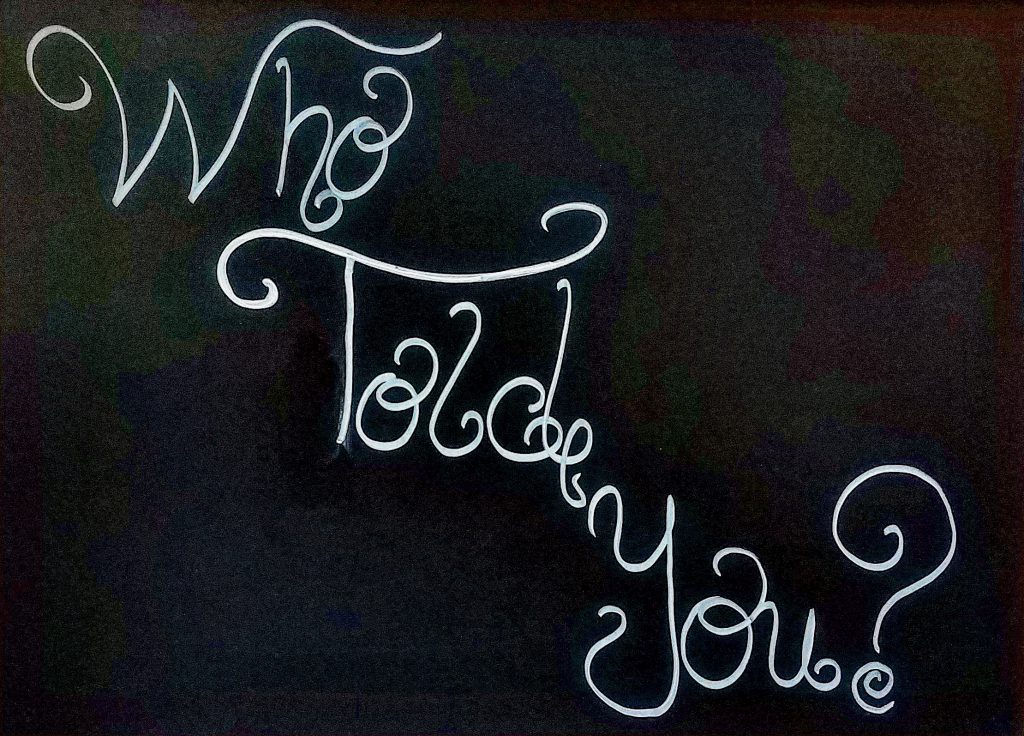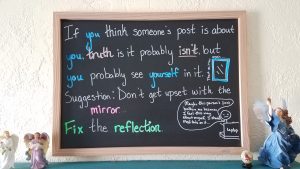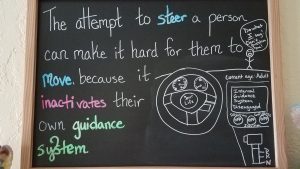Howdy y’all!
Here are some suggestions for anyone who is currently stressed out and is trying to find ways to help decrease their stress. These won’t remove the reasons for your stress, but these could help make coping a little easier. Try out the suggestions that resonate with you. This isn’t a complete list, but here are things I’ve done and/or suggested to others over the years. I hope all of y’all are well and please stay safe!
Visual:
- Find an image that makes you feel warm/happy/relaxed/etc. I’ve noticed bright colors work best for me, especially pinks and yellows. If you already have a physical print of the image, place it somewhere you can look at it constantly. It can be the refrigerator door, the corner of a mirror, beside a window, right by your computer, or wherever else you find you spend most of your time. Take time throughout your day to look at the picture as you take deep, belly breaths.
- If you aren’t able to print a colored picture, print a coloring book page and use bright colors to color it in. There are plenty of free coloring book images online that you could print off and color. Pick images that you like. It can be puppies, kittens, butterflies, nature, mandalas, or whatever else that you personally like.
- If you aren’t able to print but have artistic materials, draw a picture of something. If can be something simple like a smiling sun, a flower, an animal, or whatever feels good to you. Use bright colors.
- If you aren’t able to print at all and have no artistic materials (or don’t feel comfortable with drawing), find an image on your phone that you really like, screen shoot it, and put it as your lock screen.
- Find quotes, poems, lyrics, or some other written form that lifts you up. If you can print it off in a pretty font that appeals to you, do that and post it somewhere you’re constantly at. Again, give yourself time throughout the day to read that quote.
- You can also pick a type of outline font so you can color in the lettering yourself.
- If you can’t print (or if you prefer to write it yourself), write the quote down and place it in spots that work for you.
- You can also write a quote on mirrors with a dry erase marker if you choose (I have a chalkboard in my office).
- Read books that make you feel better. If the book you’re currently reading isn’t doing it for you, put it down and pick up another book. If mysteries are what you need right now, read them. If trashy romance novels lift you up, read them. A lot of libraries have free ebooks available, take advantage of that if you enjoy reading.
- To those reading something for work/school, if you enjoy reading, “reward” yourself with reading from a book you enjoy in-between reading the material you have to.
- Watch shows that make you feel better, especially the shows that make you laugh. If you feel heavy watching a show, switch to another show. Tune in to how you feel as you watch your programs.
Auditory:
- Listen to songs that lift you up. It doesn’t matter the genre. There are people who need to listen to more angst-sounding songs to relax. There are those who need to listen to calm, meditative music to relax. Whatever works for you is the way to go. If you can, make a few different playlists of songs that help you feel better.
- You can, of course, combine auditory and visual by watching music videos.
- Listen to podcasts that lift you up (or you find the voices soothing).
- Find podcasts that interest you or capture your attention.
- Listen to audiobooks that lift you up.
- You can also find videos of some authors reading their own works.
- If you choose, you can find guided meditations online as well.
- If you have a person in your life who has a soothing voice (and you feel comfortable enough), ask if they would be willing to record themselves reading something out loud. If they aren’t physically close to you, they can email you the file or dropbox it or something like that. It can be a children’s book, a short story, a poem, whatever it is that is soothing.
- If you find your voice soothing, you can record yourself doing those things.
- Play your instruments/sing/make music. If you don’t have an instrument, use your hands and tap out rhythms as you listen to music.
Olfactory:
- If you also have oils at your house, diffuse the ones that help you relax. Make sure to look up if the oils are pet-friendly. There are oils (like tea tree) that are not recommended to diffuse around pets.
- If you can’t diffuse, put the oil on a pillow, a stuffed animal, or a cloth that you can smell from time to time.
- If there is a perfume or cologne that is soothing, spray that on a pillow, a stuffed animal, or a cloth that you can smell from time to time (if you don’t want to wear the scent).
- Some scents recommended to boost mood are lemon, lavender, jasmine, rosemary, cinnamon, and peppermint. If you don’t have oils, see if you have lemon juice (or another citrus smell) or one of the spices in your spice cabinet. You can put any of these in a small dish and keep it close by.
- Burn a candle with a scent you like. If the candle doesn’t have a scent, you can add 1-2 essential oil drops of a smell you enjoy.
- Burn incense that you find relaxing.
Gustatory:
- We digest food better when we are in a calm, relaxed environment. When you’re eating, you may not want to watch or listen to something that makes you tense up or feel anxious.
- Scent and taste are closely related, so any of the following flavors can help boost mood: lemon, lavender, jasmine, rosemary, cinnamon, and peppermint. If you have any of these in tea form, see if incorporating those flavors helps relax you.
- Notice how you feel with caffeine (coffee, certain teas, chocolate). Caffeine is a stimulant and can increase symptoms of anxiety, so you may want to decrease your caffeine intake.
- If you are able, stay hydrated by drinking water. Don’t like the taste of water? Try putting a little citrus in it or some other fruit to see if it improves the taste for you.
Touch:
- Acupressure: for all of these points, try to hold/rub them for about 5 minutes while taking deep breaths. Stick with the points that feel relaxing. There are many acupressure points you can use for stress, these are just a few:
- Center spot between your eyebrows (your third eye)
- Web of your hand between your thumb and index finger
- Webbing between the big toe and the second toe
- Tapping: piggybacking off of acupressure, you can find tapping videos online that will take you through a protocol of acupressure points to help with stress.
- Giving yourself hugs. It has been found to help with calming.
- You can also press down on your shoulders while you are self-hugging.
- Take a long sleep shirt. Place a bag of dried beans or rice (about 1lb worth) in each sleeve. You can clip it there with a clothespin/clip. Place a pillow in the trunk part and you have a makeshift hugging device. The weighted sleeves would go on your shoulders to provide downward pressure.
- You can also just use the 1lb bags of dried beans or rice and place them on each shoulder. The downward pressure can provide stress relief.
- You can wrap a 1lb bag of rice/dried beans in a pillowcase and place it across your eyes as you lay face up. The pressure has been known to have calming effects.
- Fun fact: when people rub their eyes, they are trying to self-soothe. Light pressure stimulate the vagus nerve, which can lead to stress relief
- If you have pets, cuddling and/or petting them is beneficial. Cats purring has been known to decrease stress.
- Piggybacking off of sound, try finding videos of cats purring and see if that decreases your stress
- Weighted/heavy blankets have been known to have a calming effect.
- Warm, fuzzy materials can be soothing and grounding. You can use a warm fuzzy blanket instead of the bedsheet when you sleep or to curl in throughout the day. If you have a warm, fuzzy robe, wear that.
- Warm, fuzzy socks are excellent for grounding (and they help with period cramps). If your feet are cold, it impairs blood circulation in your body. Warm feet means your circulation is better, meaning oxygen and nutrients are better able to get to where they need to go.
- Take warm baths (if you enjoy them)
- If you can’t or don’t want to take a bath, try soaking your feet in warm water. You can add essential oils that are relaxing if you choose.
- Sit outside for as long as you are comfortable (ideally between 10-30 minutes but you can break it up throughout the day) to get sunlight.
- If you can’t sit outside, find a window in your home that gets the best amount of sunlight and sit there for as long as you are able to
- Self-pleasuring is also hugely beneficial. It reduces stress, tension, and pain. It also improves sleep quality, concentration, and mood
Other:
- If you have houseplants, sit beside them throughout the day.
- If you have a yard, walk around barefoot if weather permits and it is safe to. Barefoot in the yard can help promote grounding and boost mood.
- Fun fact, this can also help with jet lag.
- If you are able to play in the dirt, do it. It has been shown to help boost mood.
- If you have a bird feeder near a window, sit and watch the activity throughout the day. If you don’t, look up animal videos and see if that boosts your mood.
- If you are able, try to stretch and move throughout the day. Walk around your home for a few minutes every hour or lightly stretch for a few minutes every hour. Or at least move around a bit any time after you use the bathroom.
- If you can workout, try to do some sort of physical activity for at least 20 minutes. There are plenty of videos online you can check out.


